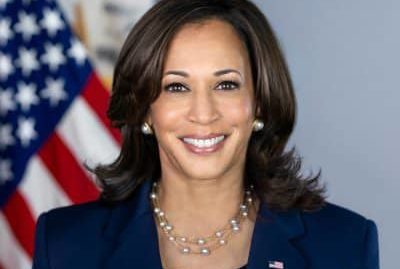As President Biden continues to face scrutiny regarding his potential bid for a second term, discussions within the Democratic Party are increasingly focusing on Vice President Kamala Harris as a viable presidential candidate. House Minority Leader Hakeem Jeffries (D-N.Y.) has privately conveyed to party members that Harris might be the best choice should Biden decide to step down, according to insiders who requested anonymity to discuss private conversations. Similarly, Rep. James E. Clyburn (S.C.), a close ally of Biden, has publicly endorsed the idea of supporting Harris, stating that Democrats should strengthen her position regardless of her place on the ticket.
Former Ohio congressman Tim Ryan, a previous presidential contender, echoed this sentiment in a recent op-ed. He expressed his admiration for Biden but argued that Harris should be the Democratic nominee, especially after Biden’s recent missteps in a high-profile debate. The potential candidacies of other Democratic figures such as Michigan Gov. Gretchen Whitmer and California Gov. Gavin Newsom seem unlikely, with sources indicating they would likely support Harris if Biden withdraws from the race.
Overcoming Past Concerns and Energizing Key Demographics
The growing consideration of Harris as the Democratic nominee marks a significant shift within the party. Historically, there has been apprehension about Harris’s ability to win the presidency, largely due to her premature exit from the 2020 presidential race before any votes were cast. Additionally, the prospect of replacing Biden has been fraught with concerns about triggering a chaotic battle among the party’s leading figures. However, the fear of internal conflict seems to be diminishing as more Democrats view Harris as a viable alternative, particularly when compared to Biden’s current challenges.
A recent CNN poll highlights this shift in perception, showing Harris trailing former President Donald Trump by a mere two percentage points, a gap within the margin of error, while Biden lags behind Trump by six points. Harris’s potential to energize key Democratic-leaning groups—such as Black voters, young people, and women—further bolsters her candidacy. Progressives believe Harris could also reclaim some voters disillusioned with Biden’s handling of issues like the Israel-Gaza conflict, providing a more dynamic and inclusive vision for the party.
Practical Considerations and Legal Implications
The move to consider Harris as the Democratic nominee is also driven by practical and legal considerations. With Election Day approaching and early voting set to begin in a few months, selecting a new candidate outside the current ticket could pose significant challenges. According to political strategists and individuals close to the decision-making process, such a shift would involve navigating a complex landscape of delegate allocation and campaign financing.
Choosing someone other than Harris could disrupt the status of delegates already secured by Biden and Harris and complicate the management of their substantial campaign funds, estimated at nearly a quarter-billion dollars. Transferring this money to a new candidate could face legal hurdles, further reinforcing the rationale for supporting Harris. This pragmatic approach aims to maintain stability and continuity within the party, ensuring a smoother transition should Biden opt to step aside, and ultimately bolstering the Democratic Party’s chances in the upcoming election.
Kamala Harris: The Optics of Diversity
Kamala Harris’s position as the first Black woman to win a nationally elected office adds a significant layer to the Democratic Party’s considerations for the 2024 election. Shunting her aside for a White, possibly male, candidate could alienate Black voters, a demographic the campaign considers crucial for securing the White House. The Democratic Party, which prides itself on diversity, could face accusations of hypocrisy if it appears to undermine Harris’s candidacy.
Supporters of Kamala Harris argue that the potential alternatives, including Michigan Governor Gretchen Whitmer, California Governor Gavin Newsom, Illinois Governor J.B. Pritzker, Representative Ro Khanna of California, Pennsylvania Governor Josh Shapiro, and Maryland Governor Wes Moore, are popular in their home states and within Democratic circles but remain untested on the national stage. According to Jamal Simmons, Harris’s former communications director, the math of electoral success still points to Harris. He suggests that while people desire the president to succeed, they are uncertain about alternatives, reinforcing the argument for Harris as a known and tested figure.
Kamala Harris’s Appeal to Key Voter Demographics
The ability of Kamala Harris to mobilize key voter demographics is a significant argument in her favor. Democratic strategist Mike Trujillo highlights her unique appeal, especially among African American voters, who are the backbone of the Democratic Party. Trujillo questions whether other candidates like Whitmer or Newsom can inspire the same voter turnout in crucial battleground states such as Pennsylvania and North Carolina, where the African American vote is pivotal.
Moreover, Kamala Harris presents a younger face and a symbol of change in a political landscape dominated by elderly candidates. At 59, she is significantly younger than both President Joe Biden, 81, and former President Donald Trump, 78. This generational difference could resonate with voters who are uninspired by a rematch of two septuagenarians who have previously served in the White House. Harris’s presence on the ticket could invigorate a campaign narrative centered on progress and future-forward thinking.
Challenges and Skepticism Within the Party
Despite her historic role and potential to galvanize voters, Kamala Harris faces skepticism within her own party. Critics point to her failed presidential campaign and early struggles in her vice presidency as reasons for concern. Her handling of the assignment to address the root causes of illegal migration, a task given to her by President Biden, was widely viewed as challenging, with some arguing it was an impossible task from the start.
Additionally, Kamala Harris’s perceived reputation as a California liberal could alienate White centrists in the Midwestern suburbs, a demographic crucial for Democratic victories. This skepticism extends to major Democratic donors, some of whom doubt Harris’s ability to raise campaign funds as effectively as Biden. These concerns underscore the broader debate within the Democratic Party about the viability of Kamala Harris’s candidacy and the strategic direction needed to secure victory in 2024.














